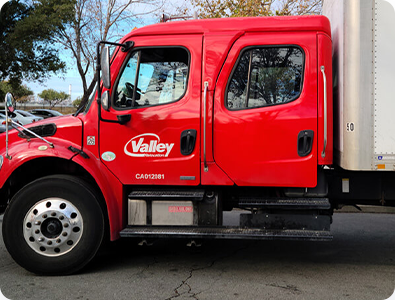Commercial relocation, the act of moving a business from one location to another, is a transformative event that can profoundly impact the dynamics of a company. Whether motivated by expansion, cost-saving measures, or strategic considerations, relocating a business triggers a series of effects that reverberate throughout the organization. Understanding these effects is crucial for business owners, managers, and stakeholders as they navigate the complex process of commercial relocation.
In this blog, we’ll delve into the ten key effects of commercial relocation on business dynamics. By examining the various aspects that are influenced by a move, we aim to provide insights into the challenges and opportunities that arise during this critical transition. From the geographic reach and access to markets to workforce dynamics, operational efficiency, and financial implications, each effect plays a pivotal role in shaping the overall dynamics of a business.
The effects of commercial relocation are multifaceted and interconnected. Each effect interacts with others, creating a complex web of changes requiring careful consideration and planning. By analyzing the ten effects outlined in this blog, business owners and decision-makers can gain a holistic view of the challenges and opportunities they may encounter during the relocation process.
Keep reading to explore more!
1. Geographic Reach and Access to Markets
Relocating a business opens up new opportunities by expanding its geographic reach and potentially granting access to previously untapped markets. Moving to a more strategically advantageous location, such as a bustling commercial hub or an area with a target customer base, can enhance business dynamics by increasing visibility, attracting new customers, and boosting sales potential.
Geographically, office relocation involves moving the company’s operations, offices, or production facilities to a new location. This shift can have both local and global implications. Locally, it can impact the economic dynamics of the current and new host communities. The relocation may bring new jobs, infrastructure development, and increased economic activity to the new area. Conversely, it can lead to job losses and economic decline in the original location.
Market access effects are another crucial aspect of commercial relocation. By moving to a new location, a business may gain access to untapped or more lucrative markets. The relocation can enable the company to establish a presence in regions with higher demand for its products or services, expanding its customer base and potentially increasing sales and profits.
2. Workforce Dynamics

Commercial relocation can have significant effects on the workforce dynamics of a company. When a business decides to relocate, it impacts the employees, their employment status, skills utilization, and overall job market conditions.
One of the key workforce dynamic effects of commercial relocation is employee retention and turnover. Relocating a business requires existing employees to make a decision about whether to move with the company or seek employment elsewhere. This can lead to a loss of valuable talent and institutional knowledge if employees choose not to relocate. It may also increase turnover as some employees prefer to find new job opportunities in the original location rather than move.
Commercial relocation can also affect the availability and composition of the labor market in the new location. It may create job opportunities for local workers, leading to increased employment and economic growth in the area. Conversely, it can put pressure on the local labor market if there is an insufficient supply of skilled workers to meet the needs of the relocated business. This may require the company to invest in training programs or attract talent from other regions.
The dynamic workforce effects of commercial relocation extend beyond the immediate employees of the relocating company. They can also influence the broader job market in the original and new locations. For example, the departure of a large employer from a specific area may lead to job losses and increased competition for employment opportunities.
3. Operational Efficiency and Infrastructure
When a company decides to relocate, it provides an opportunity to reassess and improve various aspects of its operations, resulting in increased efficiency and productivity.
One of the primary operational efficiency effects of commercial relocation is the optimization of physical infrastructure and facilities. Relocation offers a chance to design or choose a new workspace that better aligns with the company’s needs and processes. This can lead to improved layout, workflow, and utilization of space. The company can enhance productivity and reduce operational waste by strategically organizing work areas, incorporating efficient equipment and technology, and implementing lean processes.
Commercial relocation can also allow for the reconfiguration of supply chains and logistics networks. The new location may offer advantages such as better transportation infrastructure, proximity to suppliers or customers, or improved access to key resources. By leveraging these factors, the company can streamline its supply chain, reduce transportation costs, and optimize inventory management. This can lead to faster delivery times, improved customer satisfaction, and overall cost savings.
4. Cost Structure and Financial Implications
Another one of the effects of commercial relocation is the cost associated with the physical move itself. This includes expenses such as leasing or purchasing a new property, relocating equipment and inventory, transporting employees, and renovating or setting up new facilities. These costs can be substantial and require careful budgeting and financial planning.
Additionally, commercial relocation may lead to changes in operating costs. The new location may have different labor costs, rental or lease rates, utility expenses, and tax structures. These factors can affect the overall cost structure of the business. While relocation can sometimes result in cost savings, such as lower rent or energy costs, it can also lead to increased expenses in areas like labor if wages are higher in the new location.
Another financial effect of commercial relocation is the potential impact on revenue and profitability. Relocating to a new area can open up opportunities for business expansion and market growth. It may allow the company to access new customer segments, expand its market reach, or benefit from favorable business conditions in the new location. These factors can contribute to increased sales and revenue.
5. Customer Perception and Branding

Relocating a business can reshape the perception of a brand among existing and potential customers. Depending on the circumstances surrounding the move, customers may perceive it as a positive sign of growth and expansion or view it with skepticism. Proactively managing customer communication, addressing concerns, and leveraging the relocation as an opportunity to strengthen the brand’s positioning can help maintain customer loyalty and improve business dynamics.
Commercial relocation can also affect customer loyalty and trust. Established customer relationships may be disrupted due to the move, leading to potential challenges in retaining existing customers. However, effective communication and transparent messaging about the relocation can help alleviate concerns and maintain customer loyalty. Keeping customers informed about the reasons behind the move, the expected benefits, and any potential impact on services can foster trust and strengthen the relationship.
Moreover, commercial relocation can influence customer perception in terms of accessibility and convenience. The new location may offer improved accessibility, better parking facilities, or more convenient proximity to customer segments. This can enhance the overall customer experience and satisfaction. On the other hand, if the relocation leads to increased distance or inconvenience for customers, it may result in negative perception and potential customer attrition.
6. Supply Chain and Logistics
Commercial relocation can also lead to changes in supplier relationships and logistics partnerships. Suppliers located near the original location may no longer be geographically viable or cost-effective after the relocation. This necessitates identifying new suppliers or renegotiating contracts with existing ones. Similarly, logistics partners may need to be reassessed and new arrangements made to ensure seamless transportation, warehousing, and distribution of goods to and from the new location.
Furthermore, local moving experiences can impact inventory management and storage facilities. The relocation may require the transfer of existing inventory to the new location or the establishment of new storage facilities. This process needs to be carefully planned to avoid disruptions in the availability of products to customers. Inventory levels, storage capacity, and distribution strategies may need to be adjusted to accommodate the new location’s unique requirements.
7. Regulatory and Legal Considerations
Commercial relocation entails several regulatory and legal considerations that businesses must address when moving to a new location. These considerations are essential to ensure compliance with the new jurisdiction’s legal frameworks and regulatory requirements and minimize any potential legal or operational risks.
One primary regulatory and legal consideration in commercial relocation is understanding the laws and regulations specific to the new location. Each jurisdiction has its own set of legal requirements, including business registration, licensing, permits, and tax obligations. It is crucial for businesses to thoroughly research and familiarize themselves with the legal landscape of the new location to ensure compliance from the outset.
Business registration and licensing are typically necessary when relocating to a new jurisdiction. This process involves registering the company with the relevant local authorities and obtaining the required legal licenses or permits. Compliance with these registration and licensing requirements is crucial to avoid legal penalties and operate within the bounds of the law.
Tax considerations are also paramount when relocating. Different jurisdictions have varying tax regulations, including corporate, sales, and employment taxes. It is essential for businesses to understand the tax implications of the new location, including any incentives or exemptions that may be available. Engaging with tax professionals or consultants can help navigate the complexities of tax regulations and ensure compliance.
8. Competitive Landscape
When a company decides to relocate, it can influence the competitive dynamics within its industry and potentially gain a competitive advantage in the new location.
One of the primary effects of commercial relocation on the competitive landscape is the opportunity to differentiate from existing competitors. Relocating to a new location can allow a business to position itself uniquely in the market, offering distinct advantages over competitors.
This may include access to a new customer base, proximity to key suppliers or distribution channels, or specialized resources available in the new location. By leveraging these advantages, a business can strengthen its competitive position and attract customers who value the benefits associated with the new location.
9. Community Engagement and Relationships

Professional relocation can have significant effects on community engagement and relationships. When a business decides to relocate, it has the opportunity to establish new connections, contribute to the local community, and build positive relationships with stakeholders in the new location.
Commercial relocation also presents a chance to contribute to the local economy and job market. By relocating to a new location, a business can generate employment opportunities for local residents, boosting economic growth and stability in the community. This job creation can positively impact the overall perception of the business and strengthen its relationship with the community.
10. Company Culture and Employee Morale
Commercial relocation can also impact employee morale, particularly if not properly managed. Relocation often requires employees to uproot their lives, potentially leading to personal disruptions, changes in commuting patterns, or adjustments to work-life balance. These factors can affect employee morale and engagement. Open and transparent communication about the reasons for the relocation, the benefits it brings, and any support or resources available to employees can help alleviate concerns and maintain morale.
Moreover, commercial relocation presents an opportunity for businesses to reinforce their commitment to employee well-being and satisfaction. By investing in the relocation process, providing support services, and addressing employee needs, companies can demonstrate that their employees’ welfare is a priority. This can contribute to maintaining high morale and a positive perception of the company culture.
Valley Relocation Can Move You!
With all the different effects of commercial relocation in mind, your business can now make informed decisions about the move. Moreover, once you decide to move, you can start thinking about who to hire. If you want a seamless and simple experience, then hiring Valley Relocation for the job is your safest bet. We are a competitive and successful moving company with more than three decades of experience.
Not only do we provide our clients with streamlined and seamless moving services, but we offer specialized transportation, warehouse services, facility services, and a lot more to make your relocation experience a wholesome one.
So, what are you waiting for? All you need to do is pick up your phone, dial our number, and get in touch with our team to let them know about how we can help you out.






